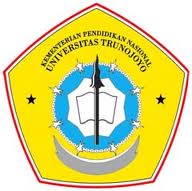Anda belum Log-in!
Silahkan Log in
Selamat Datang di Portal Digital Content Publisher
Jumat , 03 October 2025
Perpustakaan sebagai jantung pendidikan tinggi di Indonesia, harus mampu memberi kontribusi yang berarti bagi pelaksanaan proses belajar mengajar di perguruan tinggi.
di-posting oleh 110511100031 pada 2015-08-06 14:16:36 • 475 klik
ANALISIS TINDAK TUTUR LANGSUNG YANG DIHASILKAN OLEH TOKOH UTAMA "JAKE SULLY" DI AVATAR SCRIPT FILM
AN ANALYSIS OF DIRECTIVE UTTERANCES PRODUCED BY MAIN CHARACTER "JAKE SULLY" IN AVATAR MOVIE SCRIPT
disusun oleh SOFIA MAKHZUMA AISAH
| Subyek: | Pragmatics approach Directive Utterances |
| Kata Kunci: | Keywordw: Directive utterances Avatar Meaning of Directive Utterance Components of Illocutionary Force |
[ Anotasi Abstrak ]
Penelitian ini mengkaji tentang tindak tutur langsung yang digunakan di script film Avatar. Penelitian ini bertujuan untuk menemukan tipe dari tindak tutur langsung yang dihasilkan oleh tokoh utama "Jake Sully" berdasarkan teori Bach dan Harnish, untuk menjelaskan maksud dari tindak tutur langsung yang diungkapkan oleh Jake Sully berdasarkan teori Vanderveken, dan terakhir untuk mengetahui tipe dari tindak tutur langsung yang paling banyak muncul di script film Avatar. Penelitian ini menggunakan kualitatif dalam menganalisis data dan penulis sebagai pelaku utama dalam mengumpulkan data. Sumber data yang digunakan berasal dari ungkapan yang dihasilkan tokoh utama "Jake Sully" di script film Avatar. Dari semua ungkapan yang dihasilkan oleh Jake Suly, ada enam tipe tindak tutur langsung yang ditemukan diungkapan Jake Sully, permintaan (52,93%, Pertanyaan 25,75%), persyaratan (10,69%), melarang (2,03%), mengizinkan (3,25%), dan menasehati (5,35%). Di antara jenis tindak tutur langsung yang ada, permintaan adala salah satu jenis tindak tutur langsung yang paling banyak muncul dan yang frekwensinya rendah adalah melarang dari yang digunakan tokoh utama.Selanjutnya untuk menjelaskan maksud dari tindak tutur langsung pada ungkapan Jake Sully, penulis menggunakan enam komponen dari illocutionary force; point ilokusi,mode of achievement, propositional content, kondisi persiapan, sincerity condition, and degree of strength.
Deskripsi Lain
This study is about directive utterance used in Avatar movie script. The purpose of this study were to find out the types of Directive Utterance produced by main character “Jake Sully” base on Bach and Harnish’s theory, to describe the meaning of directive utterance uttered by Jake Sully base on Vanderveken’s theory, and the last to find out which is the most frequent occurrence in the Avatar Movie script. The study was conducted by using qualitative research and the writer is the main instrument in collecting data. The source of data is Avatar movie script directed and written by James Cameron. The data are those utterances produced by main character, namely Jake Sully in Avatar movie script. From all the utterance, there are six types of Directive utterance found in Jake Sully utterances, those are: requestive (52,93%), Questions (25,75%), Requirements (10,69%), Prohibitive (2,03%), Permissive (3,25%), and Advisories (5,35%). Among Directive Utterance types existed, requestive is the most frequently type appeared in the Avatar Movie Script, the prohibitive has lowest frequency of used by main character. Furthermore, to describe the meaning of Directive utterances on Jake Sully’s utterances, the writer used six component of illocutionary force; the point of Illocution, the mode of achievement, the propositional content, the preparatory condition, sincerity condition, and the degree of strength.
| Kontributor | : Dr. Masduki, M.Pd |
| Tanggal tercipta | : 2015-07-08 |
| Jenis(Tipe) | : Text |
| Bentuk(Format) | |
| Bahasa | : Indonesia |
| Pengenal(Identifier) | : TRUNOJOYO-Tugas Akhir-6992 |
| No Koleksi | : 110511100031 |
Ketentuan (Rights) :
2015
 Download File Penyerta (khusus anggota terdaftar)
Download File Penyerta (khusus anggota terdaftar) 1. TRUNOJOYO-Tugas Akhir -6992-110511100031-110511100031__ABSTRACT__TOC.pdf - 205 KB
1. TRUNOJOYO-Tugas Akhir -6992-110511100031-110511100031__ABSTRACT__TOC.pdf - 205 KB 2. TRUNOJOYO-Tugas Akhir -6992-110511100031-110511100031__COVER.pdf - 980 KB
2. TRUNOJOYO-Tugas Akhir -6992-110511100031-110511100031__COVER.pdf - 980 KB 3. TRUNOJOYO-Tugas Akhir -6992-110511100031-110511100031__CHAPTER I.pdf - 216 KB
3. TRUNOJOYO-Tugas Akhir -6992-110511100031-110511100031__CHAPTER I.pdf - 216 KB 4. TRUNOJOYO-Tugas Akhir -6992-110511100031-110511100031__CHAPTER II.pdf - 247 KB
4. TRUNOJOYO-Tugas Akhir -6992-110511100031-110511100031__CHAPTER II.pdf - 247 KB 5. TRUNOJOYO-Tugas Akhir -6992-110511100031-110511100031__CHAPTER III.pdf - 215 KB
5. TRUNOJOYO-Tugas Akhir -6992-110511100031-110511100031__CHAPTER III.pdf - 215 KB 6. TRUNOJOYO-Tugas Akhir -6992-110511100031-110511100031__CHAPTER IV.pdf - 678 KB
6. TRUNOJOYO-Tugas Akhir -6992-110511100031-110511100031__CHAPTER IV.pdf - 678 KB 7. TRUNOJOYO-Tugas Akhir -6992-110511100031-110511100031__CHAPTER V.pdf - 141 KB
7. TRUNOJOYO-Tugas Akhir -6992-110511100031-110511100031__CHAPTER V.pdf - 141 KB 8. TRUNOJOYO-Tugas Akhir -6992-110511100031-110511100031__REFERENCES.pdf - 9 KB
8. TRUNOJOYO-Tugas Akhir -6992-110511100031-110511100031__REFERENCES.pdf - 9 KB 9. TRUNOJOYO-Tugas Akhir -6992-110511100031-110511100031__APPENDIXES.pdf - 279 KB
9. TRUNOJOYO-Tugas Akhir -6992-110511100031-110511100031__APPENDIXES.pdf - 279 KB Dokumen sejenis...
Dokumen sejenis...Tidak ada !
 Dokumen yang bertautan...
Dokumen yang bertautan...- An Analysis of Reference in J.K. Rowling's Novel: Harry Potter and the Half Blood Prince
- ANALISIS TINDAK TUTUR LANGSUNG YANG DIHASILKAN OLEH TOKOH UTAMA "JAKE SULLY" DI AVATAR SCRIPT FILM
 Kembali ke Daftar
Kembali ke Daftar 